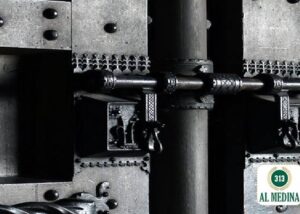Quran
Hadith
Islamic Text
بِسْمِ اللَّهِ الرَّحْمَنِ الرَّحِيمِ
In the Name of Allah Most Merciful Most Kind
Short Answer
Yes, a difference of opinion among the Sahabah is good. This is because valid difference of opinion gives people options and so makes things easier. Similarly, there is also a weak Hadith that supports this idea.
Weak Hadith
عَنِ ابْنِ عَبَّاسٍ قَالَ: قَالَ رَسُولُ اللَّهِ صَلَّى اللهُ عَلَيْهِ وَسَلَّمَ: مَهْمَا أُوتِيتُمْ مِنْ كِتَابِ اللَّهِ فَالْعَمَلُ بِهِ، لَا عُذْرَ لِأَحَدٍ فِي تَرْكِهِ , فَإِنْ لَمْ يَكُنْ فِي كِتَابِ اللَّهِ , فَسُنَّةٌ مِنِّي مَاضِيَةٌ , فَإِنْ لَمْ يَكُنْ سُنَّتِي , فَمَا قَالَ أَصْحَابِي , إِنَّ أَصْحَابِي بِمَنْزِلَةِ النُّجُومِ فِي السَّمَاءِ فَأَيُّمَا أَخَذْتُمْ بِهِ اهْتَدَيْتُمْ , وَاخْتِلَافُ أَصْحَابِي لَكُمْ رَحْمَةٌ. (المدخل إلى السنن الكبرى)
(Sayidina) Ibn Abbas narrated that the Messenger of Allah ﷺ said: Whatever you are given of the Book of Allah, act according to it. There is no excuse for anyone to abandon it. If not in the Book of Allah, then my established Sunnah. If not in my Sunnah, then what my companions have said. Indeed, my companions are in the position of the stars in the sky. Whatever you take, you will be guided. And the differences amongst my companions are a mercy for you. (Imam al-Bayhaqi’s al-Madkhal, 152).
The Hadith narration above makes it clear that having different opinions amongst Sahabah is a mercy for the Ummah. This narration is weak according to Imam al-Iraqi. However, weak narrations are acceptable for such matters. Moreover, we have numerous other proofs to substantiate the point at hand.
ذكره الْبَيْهَقِيّ فِي رسَالَته الأشعرية تَعْلِيقا وأسنده فِي الْمدْخل من حَدِيث ابْن عَبَّاس بِلَفْظ «اخْتِلَاف أَصْحَابِي لكم رَحْمَة» وَإِسْنَاده ضَعِيف. (المغني عن حمل الأسفار في الأسفار)
(Imam) al-Bayhaqi mentioned it in his commentary on al-Ash’ariyah as a footnote. He attributed it to Ibn Abbas in the Madkhal, with the wording: Difference of opinion amongst my companions is a mercy for you. And its chain of narration is weak. (Imam Zayn al-Deen al-Iraqi, Takhreej al-Ihyaa).
Although the above Hadith is weak, it is still far superior to the narration saying: difference of opinion in my Ummah is a mercy. That is because the other narration is baseless. Further, there is a considerable difference between a weak narration and a baseless or fabricated narration.
Other proofs
It is clear that the Prophet ﷺ wanted flexibility for the Ummah. This is why he discouraged Sahabah from asking too many questions regarding legal matters. As such, an increase in questions would cause greater and greater specification. Thereby, restricting room for different views. Whereas leaving certain matters somewhat ambiguous left room for different views. This therefore allows for flexibility.
As a result of this, a difference in opinion among Sahabah – which is good – occurred regarding many matters. Such differences were respected. Not only by the Sahabah, but also by the scholars who came after them.
Respecting such differences is a matter of Ijma (scholarly consensus). However, only ignorant people oppose and reject such valid differences of opinion.
Having said that, it is important to highlight that the flexibility entailed through such valid differences, must be pursued in the framework of the Madhabs of Ahl al-Sunnah. Consequently, it is not acceptable for any individual to act upon any opinion they come across. Rather, it must be authenticated and contextualised.
Conclusion
Different opinions amongst Sahabah are a mercy.
The Hadith narration stating this is weak. Nevertheless, it is still permitted to quote it. But one must mention the weakness.
However, we have an abundance of other evidence to substantiate the point. So, it is correct to assert that different opinions amongst Sahabah are a mercy.
Muslims must remember that difference of opinion in this religion is by design. Meaning Allah (Most High) decreed it. It was not incidental.
If Allah (Most High) did not want difference of opinion in His religion then everything would have been clarified by the Prophet ﷺ. Thus, leaving no room for difference. It is important to recognise this favor and be grateful for it. Only ignorant people reject the favors of Allah (Most High).
And Allah Most High Knows Best.
–Answered by Shaykh Noorud-deen Rashid (17.04.2024)






